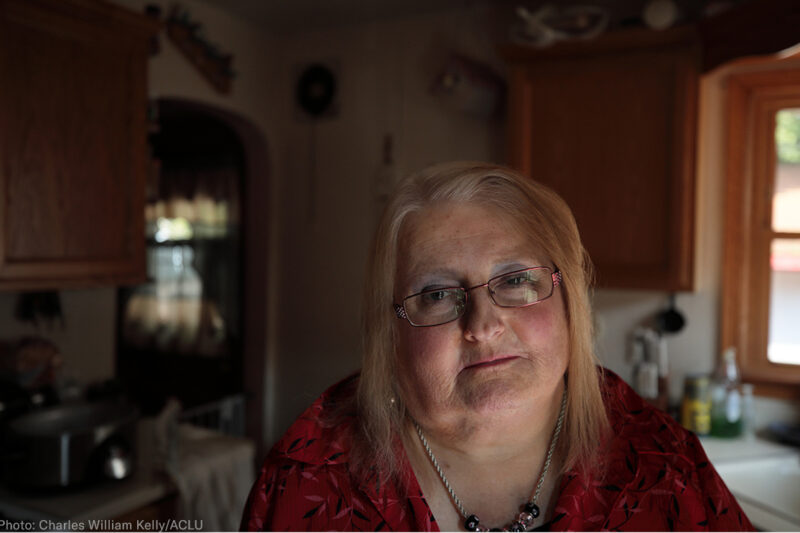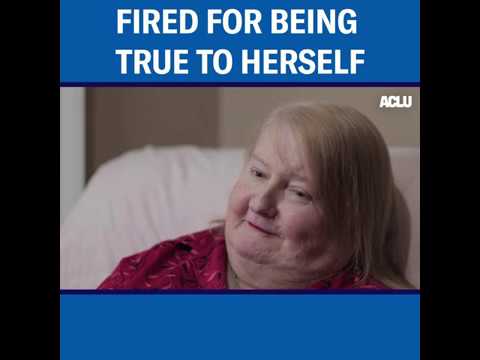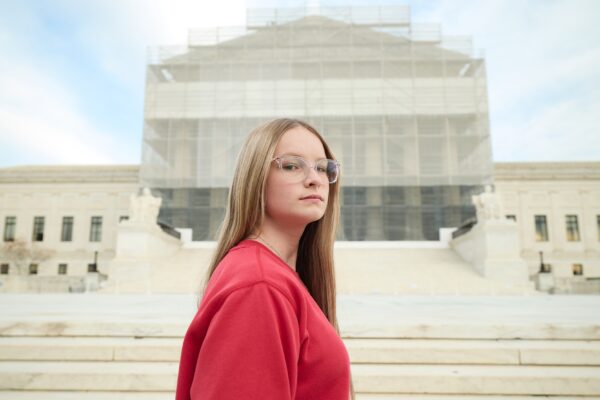
I was in funeral services for nearly three decades before I was fired in 2013 for being transgender. In March, a federal appeals court agreed that it was wrong to fire me just because of who I am. Now, the Supreme Court will consider whether to review that court ruling.
While studying to be a pastor in college, I needed a job, and I found one in a funeral home. There are a lot of different ministries people can pursue, and I realized comforting people during one of the most vulnerable points in their lives was my ministry. Some of my coworkers became my closest friends. It meant a lot to me that one co-worker once trusted me to handle the funeral arrangements for a family member.
My performance reviews were always positive. For the nearly seven years I worked specifically at R.G. & G.R. Harris Funeral Homes, I received regular raises, including one just a few months before I was fired.
Deciding to share my identity with my employer followed a lifelong journey to understand my gender. I knew, from around five years old, that I was different, even though there was no internet to help make sense of what was going on with me. As a child, I would swipe some of mom’s clothes as she was discarding them. It was nice to wear them and feel like the real version of myself, even for a just a few minutes.
My whole life, I tried to live as a man. Eventually, I told my wife Donna the truth: I am a woman. She encouraged me to see a therapist, who I expected to tell me something was wrong with me. But after a few sessions, she told me there was nothing wrong with me. In fact, she helped me think through the steps I could take to become more comfortable expressing myself.
It started with going grocery shopping dressed as a woman, and then going out to eat with Donna. I remember when we first walked into a restaurant. Everybody naturally looked up to see who was coming in. There were no comments from anyone, and I felt relief. The more time I spent being me, the more I finally started feeling right.


%3Ciframe%20allow%3D%22autoplay%3B%20encrypted-media%22%20allowfullscreen%3D%22%22%20frameborder%3D%220%22%20height%3D%22315%22%20scrolling%3D%22no%22%20src%3D%22https%3A%2F%2Fwww.youtube.com%2Fembed%2FlIISUGE_7ZA%3Fautoplay%3D1%26version%3D3%22%20width%3D%22530%22%3E%3C%2Fiframe%3E
Privacy statement. This embed will serve content from youtube.com.
There were rough patches — like being shunned from our church. I was worried about family members and how they would take the information about my identity. So was Donna. But both our families have been more understanding than either of us could have expected.
It took longer to talk to my coworkers. One day, in November 2012, I felt that I couldn’t go any further. I couldn’t come out at work — I had overheard coworkers make derogatory remarks at times and I didn’t feel I could face them. But I also couldn’t keep living two lives. I felt ready to kill myself, because I couldn’t think of a way out.
After a long hour, I realized I had too much to live for. I put down the gun that had been in my hand and picked up a pen. I started writing a letter to my co-workers, a letter that I would eventually hand to my boss.
The first coworkers I told were ready to support me, which made me feel so much better. A few months later, I handed my boss the letter while sitting in the chapel of the funeral home. It said that after an upcoming vacation, I would start using the name Aimee and following the home’s dress code requirements for women. My boss didn’t say anything at the time
A couple weeks later, he came up to me and said, “This isn’t going to work.” He handed me a letter with a severance package.
Aimee Stephens Was Fired Because She Is Transgender. That’s Sex Discrimination.
I had given almost seven years of my life to the funeral home, offering countless families comfort when they needed it most. Being discarded so coldly was hard to understand. With the help of the ACLU, I sued my former employer for discrimination.
My case made its way up, and when the federal appeals court said this past March that what happened to me was both wrong and illegal, I started to see that not only did I have the support of my wife Donna and many of our family and friends, something not all transgender people have — but I had the support of the law.
I brought this lawsuit in part to extend that support to all transgender people. No one should be fired because of who they are. I hope the Supreme Court sees the same.


